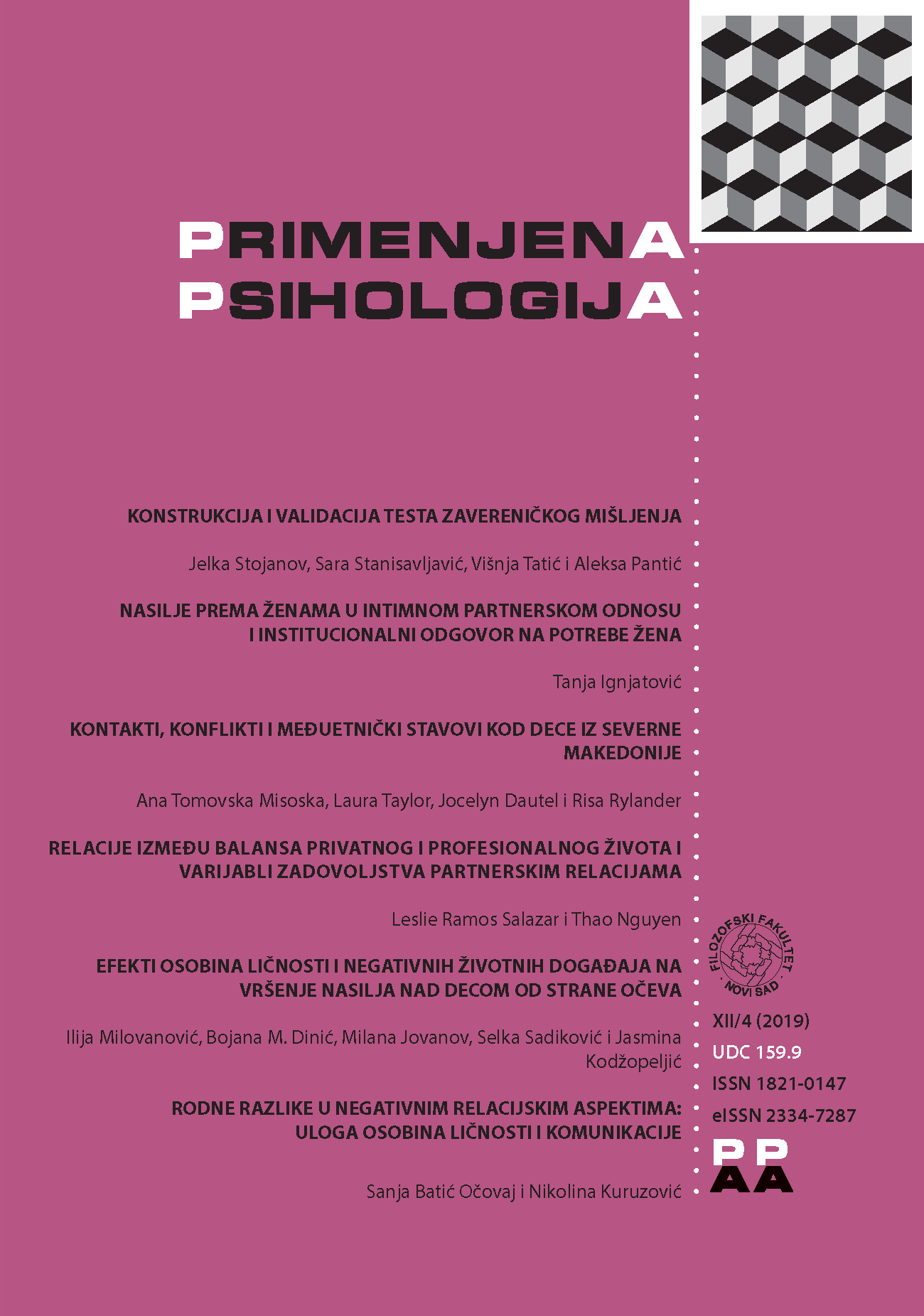EFEKTI OSOBINA LIČNOSTI I NEGATIVNIH ŽIVOTNIH DOGAĐAJA NA VRŠENJE NASILJA NAD DECOM OD STRANE OČEVA
DOI:
https://doi.org/10.19090/pp.2019.4.453-468Ključne reči:
nasilje nad decom, negativni životni događaji, očevi, osobine ličnostiApstrakt
U dosadašnjim studijama su uglavnom istraživane karakteristike majki koje su imale sklonost ka vršenju nasilja nad svojom decom. Međutim, karakteristike očeva koji ispoljavaju nasilje nad decom su manje istražene. Cilj ovog istraživanja je bio ispitivanje efekata osobina ličnosti i učestalosti negativnih životnih događaja kod očeva, kao i njihove interakcije, na vršenje nasilja nad decom. Istraživanje je sprovedena na uzorku od 259 očeva iz opšte populacije iz Srbije. Rezultati su pokazali da veća agresivnost i veća učestalost negativnih životnih događaja značajno doprinose predviđanju nasilja nad decom od strane očeva. Nadalje, interakcija između neurotizma i negativnih životnih događaja se takođe pokazala značajnom, u smeru u kojem su očevi sa nižim neurotizmom i većom učestalošću negativnih životnih događaja više skloniji ispoljavanju nasilja nad decom. Rezultati ovog istraživanja potvrđuju da osobine ličnosti očeva mogu biti važne odrednice nasilničkog ponašanja prema deci, ali da je pojedine personološke karakteristike potrebno razmotriti u kontekstu negativnih situacionih faktora.







